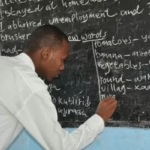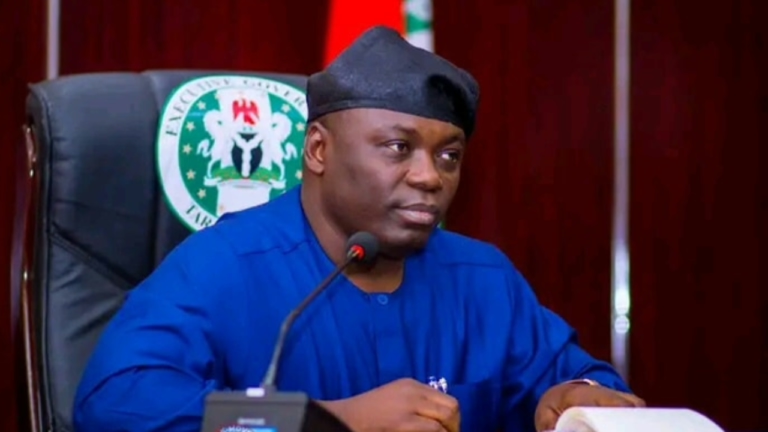When Governor Agbu Kefas of Taraba State announced a State of Emergency in education, skepticism was widespread. Many viewed it as just another political maneuver, typical of officials who often launch ambitious but impractical programs that fail to benefit the general populace.
Historically, some leaders have crafted impressive policies, assembled management teams, and even held grand launches with substantial budgets to create an illusion of dedication. However, these initiatives frequently faltered during implementation, becoming mere illusions that drained resources and served as conduits for misappropriation of public funds.
Public confidence was further undermined by the frequent discontinuity of government policies. Each new administration tended to discard previous programs in favor of introducing their own, often without thoroughly assessing the value, investment, or impact of existing initiatives on the community.
Consequently, many citizens have grown disillusioned with government projects, doubting their consistency and effectiveness, even when such programs have tangible beneficiaries.
Against this backdrop, Governor Agbu Kefas is establishing a robust and enduring framework. His education policy is designed with such comprehensiveness that future administrations will find it difficult to disregard, as it genuinely embodies the principles of social service and public welfare.
Since assuming office on May 29th, 2023, Governor Kefas wasted no time in addressing the dire state of primary and secondary education in Taraba. Within his first month, he openly acknowledged the decay afflicting schools and declared a State of Emergency to prioritize education reform. “We have clear blueprints for how we want all our schools to be,” he stated.
This declaration, made on June 4th, 2023, underscores the Governor’s readiness to serve and marks a progressive shift in a sector long neglected by previous governments.
The Kefas administration’s vision extends beyond merely waiving school fees for primary and secondary students. It encompasses all tiers of basic and post-basic education, a move warmly welcomed by the people who recognize the urgency of revitalizing the education system.
Prior to this intervention, visiting any public school in Taraba was a disheartening experience. The dilapidated conditions raised questions about the government’s priorities and commitment. Educators in the state had little reason to take pride in the system.
Investigations revealed that many schools were in a state of severe disrepair. Students often had to learn outdoors, under trees or in crumbling buildings, exposing them to various hazards. While some communities took it upon themselves to raise funds for their children’s education, many elected officials at local and national levels neglected their responsibilities, leaving the education sector to deteriorate further.
More troubling was the lack of access to quality education for many children. Even where school buildings existed, a shortage of teachers meant that students’ learning was compromised. Those seeking a Western-style education faced long, risky journeys to distant schools, discouraging many from continuing their studies.
Economic hardship also contributed to rising dropout rates. Many parents, including civil servants and pensioners struggling with unpaid salaries, as well as subsistence farmers, found it difficult to afford school fees.
In essence, before Governor Kefas’s administration, public education in Taraba was in a deplorable state, necessitating urgent reforms.
Today, under Governor Kefas’s leadership, the education sector is experiencing significant improvements. The government has mandated the distribution of free uniforms, exercise books, textbooks, sandals, socks, and school bags to students in primary and secondary schools statewide. Additionally, instructional materials have been supplied to enhance teaching and learning. The administration has also subsidized tuition fees and covered examination costs for NECO and WAEC candidates.
Moreover, extensive renovations of rundown classrooms are underway across public schools, while tertiary institutions are benefiting from new constructions and refurbishments beyond the scope of TETFUND projects.
Recognizing the security challenges in the region, the Governor has deployed personnel from the Nigeria Security and Civil Defence Corps to safeguard schools, particularly boarding facilities, ensuring a secure learning environment.
Governor Kefas’s dedication is further exemplified by his consistent disbursement of bursary allowances to 400,000 Taraba students enrolled in the Nigerian Law School, alleviating financial pressures on families amid inflation and subsidy removals.
He has also reduced tuition fees across all academic programs in public tertiary institutions, resulting in a 60% surge in enrollment. This policy aims to make education accessible to children from low-income families, reduce poverty, and enable parents to meet other household needs.
The provision of free education harkens back to the era of the 1950s through the early 1980s, when students benefited from meals, transportation, and support for those with special needs, among other incentives.
Governor Kefas’s commitment to free education reflects his belief that education is the cornerstone of societal progress. His administration is focused on eradicating illiteracy, enhancing educational quality at all levels, improving livelihoods, and fostering overall state development.
The transformative approach to education under Dr. Kefas is reshaping the narrative, setting a benchmark for effective governance. It encourages higher student enrollment, motivates teachers, and eases the financial burden on parents, allowing them to focus on other priorities.
Today, Taraba is no longer viewed as an educationally disadvantaged state but is emerging as a competitive player among Nigeria’s states.
Central to these reforms is the Governor’s unwavering commitment to ensuring that no child in Taraba is left behind academically, coupled with efforts to guarantee the safety and well-being of all residents.

















